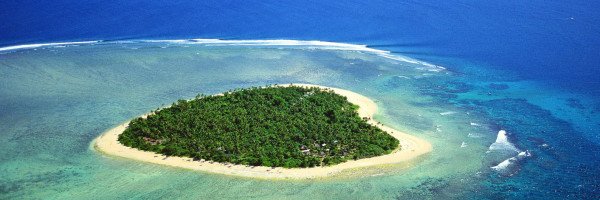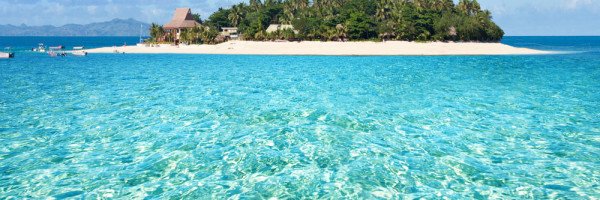The Effects of Climate Change on Fiji’s Ecosystems
Climate change poses a significant threat to Fiji’s unique ecosystems, which are home to a rich variety of flora and fauna. Rising sea levels, increasing ocean temperatures, and more frequent extreme weather events are altering habitats and threatening species that are already vulnerable. Coral reefs, which are vital for marine biodiversity and tourism, are particularly at risk due to coral bleaching caused by warmer waters. This phenomenon not only affects the marine life that relies on coral reefs but also impacts the livelihoods of communities that depend on fishing and tourism. While Fiji’s biodiversity faces challenges, there are opportunities for sustainable tourism that can help mitigate some impacts. Eco-friendly resorts and guided tours focusing on conservation can promote awareness and generate revenue that supports local communities and conservation efforts. For example, initiatives that involve tourists in coral restoration projects can help foster a deeper appreciation for the environment. New Zealand has implemented similar practices through its own ecotourism strategies, where visitors actively participate in conservation efforts, thereby creating a more sustainable tourism model. For more information on Fiji’s biodiversity and its tourism initiatives, visit Fiji Islands.Coral Reefs: The Canaries of Climate Change
Coral reefs are often referred to as the “canaries of the sea” because their health reflects the overall state of marine ecosystems. In Fiji, coral reefs support not only marine biodiversity but also the tourism industry, which is vital for the economy. Climate change-induced coral bleaching poses a direct threat to these ecosystems, resulting in the loss of biodiversity, which can take decades to recover. Sustainable tourism in Fiji can play a crucial role in protecting these reefs. Tour operators can implement guidelines to minimize the ecological footprint of their activities, promoting coral-friendly practices such as avoiding sunscreen that contains harmful chemicals. New Zealand’s Great Barrier Island serves as an excellent model, where tourism operators are required to adhere to strict environmental standards to protect marine environments. Tourists can also engage in reef restoration efforts, contributing to both the health of the reefs and their own memorable experiences. More insights on how Fiji is addressing these challenges can be found at Fiji Islands.Impacts on Terrestrial Biodiversity
Fiji is home to numerous endemic species, many of which are found nowhere else on Earth. However, climate change is disrupting their habitats, with altered rainfall patterns and increased temperatures threatening the delicate balance of these ecosystems. The loss of forests due to rising sea levels and invasive species further exacerbates the situation, putting additional stress on wildlife. Sustainable tourism offers a pathway to protect Fiji’s terrestrial biodiversity. By promoting eco-trekking and wildlife observation tours, visitors can contribute to conservation efforts while enjoying the natural beauty of the islands. For instance, New Zealand’s focus on conservation areas and national parks has successfully combined tourism with ecological preservation. Tourists are educated on the importance of biodiversity and are encouraged to support local conservation initiatives. For more details on how sustainable tourism can benefit Fiji’s biodiversity, check out Fiji Islands.Community Involvement and Sustainable Practices
The local communities in Fiji are on the front lines of climate change and biodiversity loss. Engaging these communities in sustainable tourism practices can lead to improved resilience and biodiversity conservation. By developing community-based tourism initiatives, local populations can benefit economically while preserving their natural resources. In New Zealand, community-led tourism projects have successfully highlighted the importance of indigenous knowledge and sustainability. Tourists are encouraged to participate in cultural experiences, such as traditional fishing practices and sustainable farming, which not only fosters respect for the environment but also supports local economies. Fiji can adopt similar models by integrating local traditions and conservation practices into tourism offerings, allowing visitors to contribute to the preservation of biodiversity. For more information on community-driven tourism in Fiji, visit Fiji Islands.Policy Framework and Sustainable Tourism Development
A robust policy framework is essential for promoting sustainable tourism in Fiji amidst the challenges posed by climate change. The government, in collaboration with NGOs and private sectors, can create policies that prioritize ecological conservation and sustainable tourism practices. These policies should aim to mitigate climate change impacts while promoting biodiversity conservation. New Zealand has set an example with its commitment to sustainable tourism through various legislative measures and support for eco-friendly initiatives. By establishing protected areas and encouraging responsible tourism, New Zealand has successfully balanced economic growth with environmental stewardship. Similarly, Fiji can enhance its policy framework to support sustainable tourism, ensuring that economic benefits do not come at the expense of its natural heritage. More information on Fiji’s tourism policies can be found at Fiji Islands.Adapting to Climate Change: Innovative Solutions
Innovative solutions are crucial for adapting to the challenges posed by climate change on Fiji’s biodiversity. This includes the use of technology to monitor ecosystems, develop early warning systems for natural disasters, and implement conservation strategies that involve both local communities and tourists. In New Zealand, innovative approaches such as using drones for monitoring wildlife and habitat conditions have shown promise. Similarly, Fiji can leverage technology to enhance its conservation efforts and create more engaging tourism experiences. For instance, integrating virtual reality experiences that educate tourists about the importance of biodiversity can create a lasting impact. Sustainable tourism can be a catalyst for these innovations, allowing visitors to see firsthand the effects of climate change while contributing to solutions. To explore Fiji’s innovative initiatives in tourism, check out Fiji Islands.The Future of Sustainable Tourism in Fiji
The future of sustainable tourism in Fiji hinges on the balance between economic growth and ecological preservation. As climate change continues to impact the islands, it is more important than ever to adopt strategies that prioritize sustainability. Tourists increasingly seek eco-friendly options, making sustainable tourism an attractive market. Learning from New Zealand’s successful tourism strategies, Fiji can position itself as a leader in sustainable tourism by promoting its unique biodiversity and the importance of conservation. By investing in sustainable practices, education, and community involvement, Fiji can create a tourism model that not only preserves its natural beauty but also enriches the experiences of visitors. With the right approach, Fiji can turn the challenges of climate change into opportunities for sustainable tourism growth. For more insights into sustainable tourism in Fiji, visit Fiji Islands.FAQs
What are the main effects of climate change on Fiji’s biodiversity?
Climate change is leading to rising sea levels, increased ocean temperatures, and more frequent severe weather events, which threaten Fiji’s unique ecosystems. Coral reefs, essential for marine biodiversity and tourism, are particularly vulnerable, suffering from bleaching and degradation. Terrestrial habitats also face challenges from altered rainfall patterns and invasive species, impacting native flora and fauna.
How does climate change affect sustainable tourism in Fiji?
The degradation of natural resources due to climate change poses significant risks to sustainable tourism in Fiji. Healthy ecosystems attract visitors, but the loss of biodiversity can diminish the appeal of the destination. Sustainable tourism relies on preserving these natural assets, meaning that the challenges posed by climate change must be addressed to maintain Fiji’s attractiveness as a tourist destination.
What opportunities for sustainable tourism arise from addressing climate change in Fiji?
Addressing climate change can lead to the development of innovative sustainable tourism practices that promote conservation and environmental education. Eco-friendly initiatives, such as community-based tourism and coral restoration projects, not only enhance biodiversity but also engage tourists in meaningful experiences, creating a competitive edge for Fiji in the global tourism market.
How can local communities contribute to sustainable tourism amid climate change?
Local communities play a crucial role in sustainable tourism by participating in conservation efforts and promoting cultural heritage. By involving residents in tourism initiatives, such as guiding eco-tours or managing marine reserves, communities can foster a sense of stewardship towards their natural resources, ensuring that both biodiversity and tourism thrive despite the challenges of climate change.
What practices can tourists adopt to support biodiversity in Fiji?
Tourists can adopt practices such as choosing eco-friendly accommodations, participating in guided nature tours led by locals, and minimizing waste during their visits. Engaging in activities like beach clean-ups or coral planting not only benefits biodiversity but also enhances their travel experience, allowing visitors to contribute positively to Fiji’s environment while enjoying its natural beauty.
Are there specific policies in place to promote sustainable tourism in Fiji?
Fiji has implemented various policies aimed at promoting sustainable tourism, including the National Biodiversity Strategy and Action Plan and the Sustainable Tourism Policy. These frameworks encourage eco-tourism investments, support local communities, and aim to create a sustainable balance between tourism development and environmental conservation, addressing the impacts of climate change on biodiversity.
How can tourists find sustainable tourism options in Fiji?
Tourists can find sustainable tourism options by researching eco-certified operators and accommodations that prioritize environmental responsibility. Resources such as travel blogs, eco-tourism websites, and recommendations from local tourism boards can help identify experiences that align with sustainable practices, allowing visitors to enjoy Fiji while supporting its biodiversity and communities.
References
- Fiji Islands Official Tourism Website – The official site for tourism in Fiji, providing insights into sustainable tourism practices and biodiversity conservation efforts in the region.
- Fiji | World Wildlife Fund – An overview of Fiji’s unique biodiversity and the challenges it faces due to climate change, along with conservation efforts.
- Impact of Climate Change on Fiji – UNEP – A report by the United Nations Environment Programme discussing the effects of climate change on Fiji’s ecosystems and biodiversity.
- Climate Change and Biodiversity in Fiji – ResearchGate – A research paper examining the relationship between climate change and biodiversity loss in Fiji, with implications for tourism.
- Climate Change in the Fiji Islands – Asian Development Bank – A comprehensive assessment of climate change impacts in Fiji, focusing on biodiversity and sustainable development opportunities.







